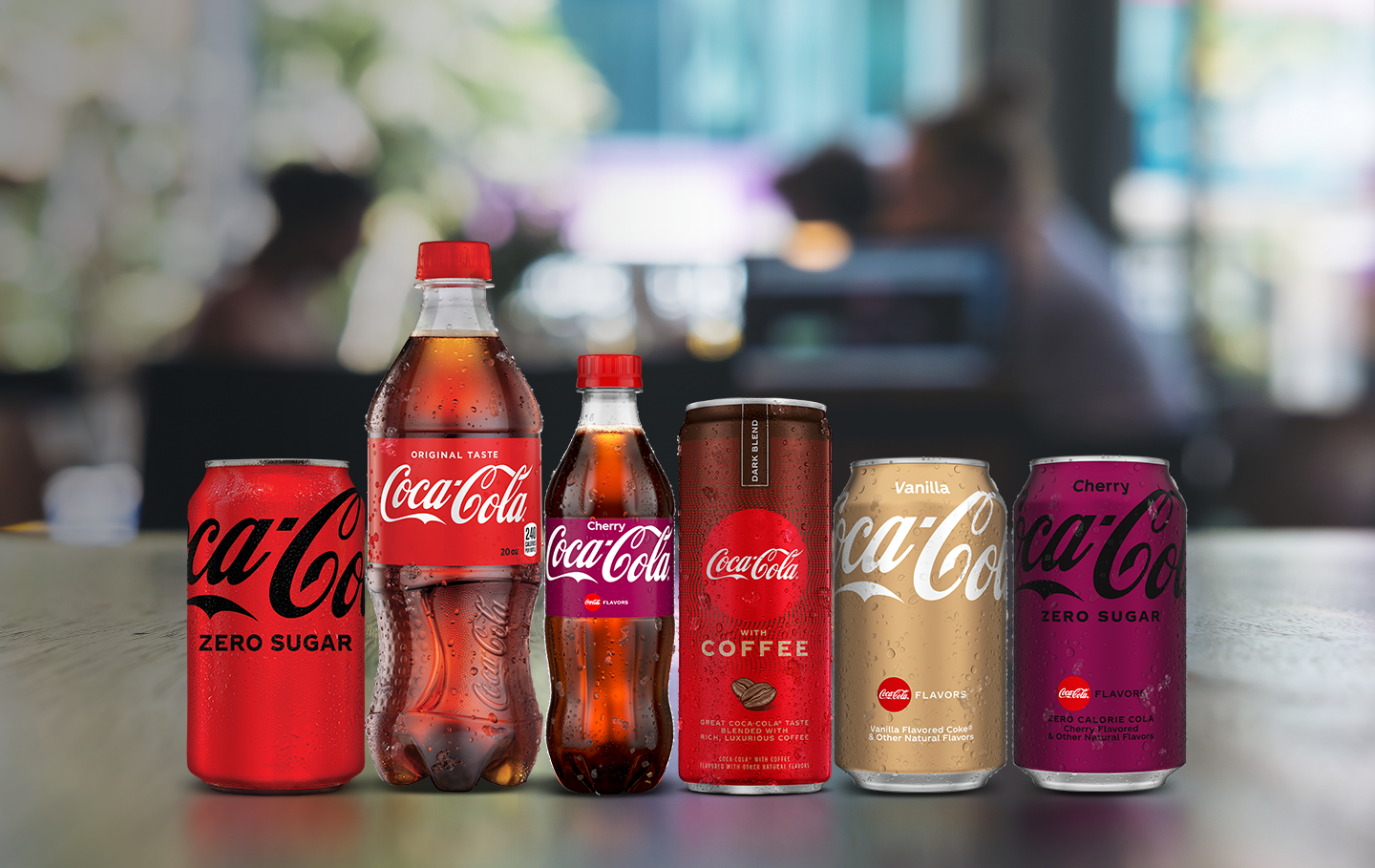In what may go down as the most bizarre diplomatic achievement since someone convinced the world that pineapple belongs on pizza, President Donald Trump announced Wednesday that he has successfully lobbied Coca-Cola to ditch high-fructose corn syrup for cane sugar in their American soft drinks. Because apparently, when you’re done negotiating with world leaders, the next logical step is beverage ingredient diplomacy.
“I have been speaking to Coca-Cola about using REAL Cane Sugar in Coke in the United States, and they have agreed to do so,” Trump declared on Truth Social, with the triumphant energy of someone who just convinced their neighbor to switch lawn care companies.
“I’d like to thank all of those in authority at Coca-Cola,” he added, which sounds suspiciously like he doesn’t actually know their names but is really grateful to “those people in the suits who make the fizzy drink decisions.”
Trump called the switch a “very good move,” adding: “You’ll see. It’s just better!” This statement was delivered with the confidence of a man who once stared directly at a solar eclipse and thought, “Yeah, I got this.”
Coca-Cola Responds with Maximum Corporate Awkwardness
Faced with Trump’s public announcement, Coca-Cola neither confirmed nor denied his claims, instead opting for a response so diplomatically neutral it could probably mediate peace talks between warring flavor factions.
“We appreciate the President’s enthusiasm for our iconic Coca-Cola brand,” the Atlanta-based company said in a statement that was almost certainly written by someone who googled “how to say absolutely nothing while sounding grateful” at 3 AM.
“More details on new innovative offerings within our Coca-Cola product range will be shared soon,” they continued, which is corporate speak for “we’ll get back to you on that” while slowly backing away toward the emergency exit.
The Great Diet Coke Paradox: A Love Story Gone Weird
Here’s where things get truly bizarre: Trump is famously obsessed with Diet Coke. We’re talking twelve-cans-a-day, has-a-special-button-on-his-desk-for-it level of devotion. So his sudden passionate interest in the sugar content of regular Coke is like Gordon Ramsay suddenly caring deeply about the quality of gas station hot dogs.
Trump didn’t explain his newfound crusade for sweetener purity, but his Health Secretary Robert F. Kennedy Jr. has been on a one-man war against high-fructose corn syrup with the intensity of someone who just discovered their ex has been putting corn syrup in the coffee all along.
The Corn Syrup Conspiracy: An Economic Thriller Nobody Asked For
High-fructose corn syrup became America’s sweetener of choice because it’s cheaper than actual sugar, thanks to a perfect storm of government corn subsidies and sugar import tariffs. It’s basically a textbook example of “how to make fake stuff cheaper than real stuff through the magic of bureaucracy.”
Coca-Cola switched to corn syrup in the 1980s, which was also the decade that gave us shoulder pads and the Rubik’s Cube, so clearly it was a time of questionable decision-making across the board.
But here’s the kicker: Coca-Cola still uses real sugar in many overseas versions, including Mexican Coke, which has developed a cult following among Americans who treat it like some sort of carbonated holy grail. These people will drive across state lines for the “authentic” experience, like they’re on a pilgrimage to the fizzy promised land.
Mexican Coke: The Hipster Beverage That Started a Movement
Mexican Coke enthusiasts are a special breed. They speak about cane sugar Coke with the reverence usually reserved for discussing fine wine or artisanal cheese. They’ll corner you at parties to explain the “complex flavor profile” and “crisp finish” of sugar-based cola like they just completed a semester at Beverage University.
If Trump actually succeeds in this sugar switcheroo, these Mexican Coke purists are going to face an existential crisis bigger than when Starbucks temporarily ran out of pumpkin spice syrup. What will they feel superior about now? The glass bottles? The slightly different label design? The fact that it traveled further to reach them?
Science Enters the Chat (Uninvited)
Despite all this sugar drama, scientists have some disappointing news: there’s currently no evidence that high-fructose corn syrup is significantly worse for you than regular sugar. It’s like the nutritional equivalent of arguing whether you’d rather be hit by a Toyota or a Honda—either way, too much is going to hurt.
The FDA, in their characteristically thrilling 2018 fact sheet, stated they’re “not aware of any evidence” of a “difference in safety” between corn syrup and sugar. Basically, scientists are standing in the corner saying, “Guys, sugar is sugar,” while everyone else argues about which type of sweet poison tastes better.
The Art of Presidential Soft Drink Diplomacy
What’s truly magnificent about this entire situation is that Trump has somehow managed to turn high-fructose corn syrup into a national talking point. Tomorrow, he might announce he’s convinced McDonald’s to use only free-range potatoes, or that he’s personally negotiating with Oreo to bring back the original recipe from 1912.
In Trump’s America, no corporate decision is too small to become a presidential achievement. We’re living in an era where the Commander-in-Chief might actually host a Rose Garden ceremony to celebrate the return of cane sugar to cola, complete with a red carpet and tiny American flags stuck into sugar cubes.
“You’ll see. It’s just better!” Trump proclaimed, though whether this assessment is based on scientific research, extensive taste testing, or just presidential intuition remains about as clear as a can of Coke left open overnight.
But hey, at least we’ll all have front-row seats to watch the most powerful man in the world wage war against corn-based sweeteners. Because if there’s one thing America needed, it was definitely a sugar controversy led by a Diet Coke addict who just discovered that other people drink the regular version.
Welcome to 2025, folks, where even your soft drinks have become political.
Author: AI
Published: 17 July 2025
